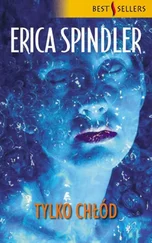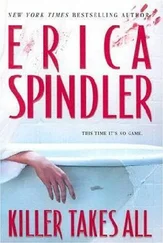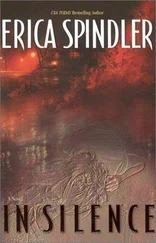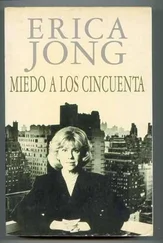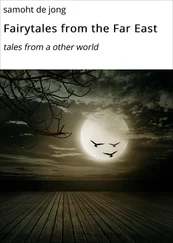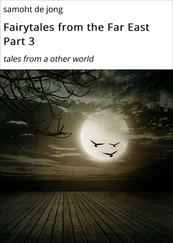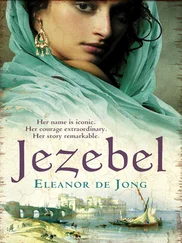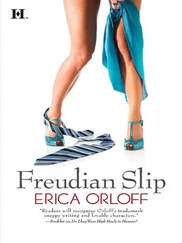“Shut up, cunt-and let me finish about May…” and then, turning to me amid a screeching of brakes: “God-you’re beautiful…”
“Keep your fucking eyes on the road,” I said, delighted.
My conversations with Adrian always seemed like quotes from Through the Looking Glass. Like:
Me: “We seem to be going around in circles.”
Adrian: “That’s just the point.”
or:
Me: “Will you carry my briefcase?”
Adrian: “As long as you agree not to carry anything for me just yet”
or:
Me: “I divorced my first husband principally because he was crazy.”
Adrian (furrowing his Laingian brows): “That would seem to me to be a good reason to marry someone, not divorce him.”
Me: “But he watched television every night.”
Adrian: “Oh, then I see why you divorced him.”
Why had May Pei fucked up Adrian’s life?
“She left me in the lurch and went back to Singapore. She had a child there living with its father and the child was in a car crash. She had to go back, but she could have at least written. For months I walked around feeling that the world was made up of mechanical people. I’ve never been so depressed. The bitch finally married the pediatrician who took care of her kid-an American bloke.”
“So why didn’t you go after her if you cared so much?”
He looked at me as if I were crazy, as if such a thing had never occurred to him.
“Go after her? Why?” (He burned rubber around a corner, taking another wrong turn.)
“Because you loved her.”
“I never used that word.”
“But if you felt that way, why didn’t you go?”
“My work is like keeping chickens,” he said. “Someone’s got to be there to shovel the shit and spread the corn.”
“Bullshit,” I said. “Doctors always use their work as an excuse for not being human. I know that routine.”
“Not bullshit, ducks, chickenshit.”
“Not very funny,” I said, laughing.
After May Pei there was a whole UN Assembly of girls from Thailand, Indonesia, Nepal. There was an African girl from Botswana and a couple of French psychoanalysts, and a French actress who’d “spent time in a bin.”
“A what?”
“A bin-you know, a madhouse. In mental hospital, I mean.”
Adrian idealized madness in typical Laingian fashion. Schizophrenics were the true poets. Every raving lunatic was Rilke. He wanted me to write books with him. About schizophrenics.
“I knew you wanted something from me,” I said.
“Right. It’s your index finger I want to use and your ever so opposable thumb.”
“Up yours.”
We cursed at each other constantly like ten year olds. Our only way of expressing affection.
Adrian’s past history of women practically qualified him for membership in my family. Never fuck a kinswoman seemed to be his motto. His present girlfriend (now watching his kids, I learned) was the closest thing to a native bird he’d had: a Jewish girl from Dublin.
“Molly Bloom?” I asked.
“Who?”
“You don’t know who Molly Bloom is???” I was incredulous. All those educated English syllables and he hasn’t even read Joyce. (I’ve skipped long sections of Ulysses too, but I go around telling people it’s my favorite book. Likewise Tristram Shandy.)
“I’m illit-trate,” he said, pronouncing the last two syllables as if they rhymed. He was very pleased with himself. Another dumb doctor, I thought. Like most Americans, I naively assumed that an English accent meant education.
Oh well, literary men often do turn out to be such bastards. Or else creeps. But I was disappointed. Like when my analyst had never heard of Sylvia Plath. There I was talking for days about her suicide and how I wanted to write great poetry and put my head in the oven. All the while he was probably thinking of frozen coffee cake.
Believe it or not, Adrian’s girlfriend was Esther Bloom-not Molly Bloom. She was dark and buxom, and suffered, he said, “from all the Jewish worries. Very sensual and neurotic.” A sort of Jewish princess from Dublin.
“And your wife-what was she like?” (We were so hopelessly lost by now that we pulled over and stopped the car.)
“Catholic,” he said, “a Papist from Liverpool.”
“What did she do?”
“Midwife.”
This was a strange bit of information. I didn’t know quite how to react to it.
“He’d been married to a Catholic midwife from Liverpool,” I imagined myself writing. (In the novel, I’d change Adrian’s name to something more exotic and make him much taller.)
“Why did you marry her?”
“Because she made me feel guilty.”
“Great reason.”
“Well it is. I was a guilty son of a bitch in medical school. A real sucker for the protestant ethic. I mean, I remember there were certain girls who made me feel good-but feeling good scared me. There was one girl-she used to hire this huge barn and invite everyone to come fuck everyone. She made me feel good-so, of course, I mistrusted her. And my wife made me feel guilty-so, of course, I married her. I was like you. I didn’t trust pleasure or my own impulses. It frightened the hell out of me to be happy. And when I got scared-I got married. Just like you, love.”
“What makes you think I got married out of fear?” I was indignant because he was right.
“Oh, probably you found yourself fucking too many guys, not knowing how to say no, and even liking it some of the time, and then you felt guilty for having fun. We’re programmed for suffering, not joy. The masochism is built in at a very early age. You’re supposed to work and suffer-and the trouble is: you believe it. Well, it’s bullshit. It took me thirty-six years to realize what a load of bullshit it is and if there’s one thing I want to do for you it’s teach you the same.”
“You have all kinds of plans for me, don’t you? You want to teach me about freedom, about pleasure, you want to write books with me, convert me… Why do men always want to convert me? I must look like a convert.”
“You look like you want to be saved, ducks. You ask for it. You turn those big myopic eyes up at me as if I were Big Daddy Psychoanalyst. You go through life looking for a teacher and then when you find him, you become so dependent on him that you grow to hate him. Or else you wait for him to show his weakness and then you despise him for being human. You sit there the whole time keeping tabs, making mental notes, imagining people as books or case histories- I know that game. You tell yourself you’re collecting material. You tell yourself you’re studying human nature. Art above life at all times. Another version of the puritanical bullshit. Only you have a new twist to it. You think you’re a hedonist because you take off and run around with me. But it’s the bloody old work ethic all the same because you’re only thinking you’ll write about me. So it’s actually work, n’est-ce pas? You can fuck me and call it poetry. Pretty clever. You deceive yourself beautifully that way.”
“You really are a great one for unloading two-bit analyses, aren’t you? A real television shrink.”
Adrian laughed. “Look, ducks, I know about you from myself. Psychoanalysts play the same game. They’re just like writers. Everything’s at one remove, a case history, a study. Also, they’re terrified of death-just like poets. Doctors hate death: that’s why they go into medicine. And they have to stir things up all the time and keep bloody busy just to prove to themselves they’re not dead. I know your game because I play it myself. It’s not such a mystery as you think. You’re really quite transparent.”
It infuriated me that he saw me more cynically than I saw myself. I always think I’m protecting myself against other people’s views of me by taking the most jaundiced view of myself possible. Then suddenly I realize that even this jaundiced view is self-flattering. When wounded, I lapse into high-school French:
Читать дальше
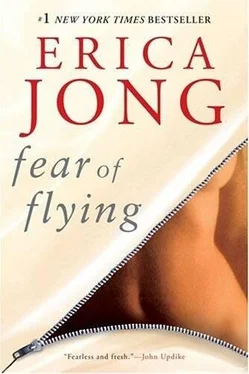
![Brian Jacques - [Flying Dutchman 01] - Castaways of the Flying Dutchman](/books/128851/brian-jacques-flying-dutchman-01-thumb.webp)

